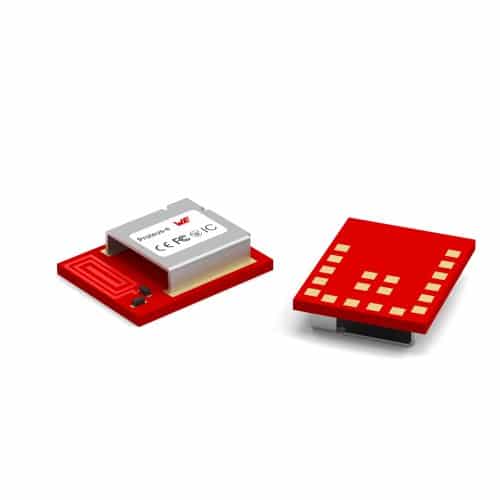With the new Proteus-e radio module, Würth Elektronik is continuing its successful Proteus Bluetooth Low Energy series. The focus of the Proteus-e is on basic Bluetooth functionality in order to address price-sensitive applications. The radio module is based on the Bluetooth Low Energy 5.1 standard and includes certificates of conformity for CE, FCC, IC and TELEC. Despite the integrated antenna, the Proteus-e is only 7 x 9 x 2 mm in size, which is a third smaller than the Proteus-III module. For applications with customer own firmware development, the module is offered under the name Ophelia-I, which means as radio module as pure hardware.

Proteus-e and Ophelia-I are based on Nordic Semiconductor’s nRF52805 chipset, which includes a 64 MHz Arm Cortex-M4 processor, 192 kB of flash memory and 24 kB of RAM. The maximum output power is 4 dBm, and the maximum data rate is 2 Mbps. In power-saving mode, the module, which was developed for mobile applications, requires only 0.3 µA. With the Proteus-e, connection timing, advertising packets and timing, beacons and UART can be freely configured. Würth Elektronik offers an evaluation board for easy commissioning and testing. With its help, the module can be connected to microcontrollers for application development. Würth Elektronik provides design-in support and offers firmware development services on request. The radio modules and evaluation boards are available from stock with no minimum order quantity.





